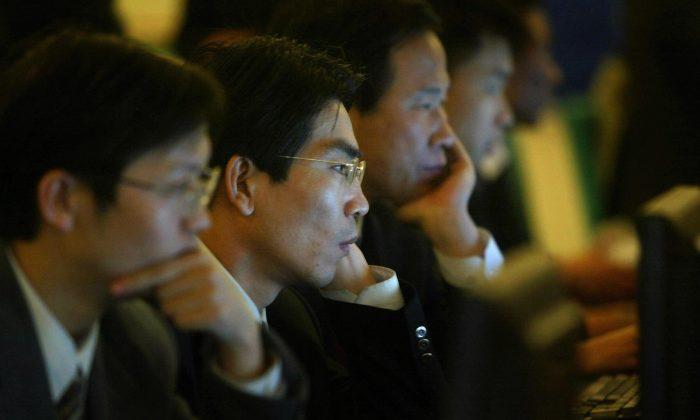The Chinese regime is amping up its monitoring of the internet with a new strategy: creating its own online buzz.
The strategy involves cadres of people who would open social-media accounts and publish internet content to shape public opinion directly, Chen Yixin, the head of the Chinese Communist Party’s Political and Legal Affairs Commission (PLAC), said at a Sept. 4 meeting with senior officials. PLAC controls China’s security apparatus.
“Utilize the PLAC’s advantage in resources to set up subjects and create hot topics,” Chen said, about training “professional writers in the PLAC system who possess internet thinking.”
The writers should be able to create attractive headlines that get netizens to click right away, and jump on any major event to influence public opinion and spread propaganda immediately—“to take the initiative to help the Party by sharing the burden,” he added.
China’s internet monitoring and censorship apparatus, spanning different agencies, is notorious for deleting any content that is deemed inappropriate by the Chinese Communist Party (CCP), even arresting and punishing those who express dissent against the Party. However, this is the first time the PLAC has publicly announced working in the realm of manufacturing internet speech.
The Party hires citizens to write posts that praise the Party’s policies or admonish those who disagree, known as the “50 cent” army, as they are paid a putative 50 cents per post. But Chen said that the “50 cent” army isn’t enough.
“Their numbers are not enough while the quality is weak,” so they are like “a group of straggling soldiers,” was the conclusion from the meeting, according to state media reports. Instead, Party members should cultivate talented writers who can draw millions of followers for their Weibo accounts. According to a 2015 online survey of “50 cent” workers hired by the Chinese regime, there are roughly 10 million college-age students who participate in online posting for the Party.
The Chinese regime has intensified its control over the internet, as Party leaders look to tighten their grip on a huge and diverse online cultural scene popular with China’s youth. Everything from video parodies to viral memes and dissident speech has come under China’s censorship.
Internet platforms hire their own staff to censor information, such as the 1,000 people hired by Weibo, an equivalent to Twitter, to report “harmful” content.
The Party’s intensified fervor over controlling public opinion also comes at a time when the leadership is trying to quell criticism of the Party’s aggressively nationalistic propaganda. Some outspoken Chinese, including academics, have blamed the propaganda for increasing international scrutiny and pressure on China.
In August, the Party convened a two-day meeting on propaganda and ideology that was attended by officials from major state media outlets and the internet regulator. Chinese leader Xi Jinping gave a speech in which he sought to assure the attendees that the Party’s propaganda efforts were correct.
Xi said the Party’s propaganda policies since 2012—when he came to power—have upheld Marxism and socialism with Chinese characteristics. Future propaganda efforts needed to be put front and center, according to state-run media Xinhua.
“Uphold a clean and righteous internet space,” the report cited Xi as saying.
Reuters contributed to this report.






Friends Read Free